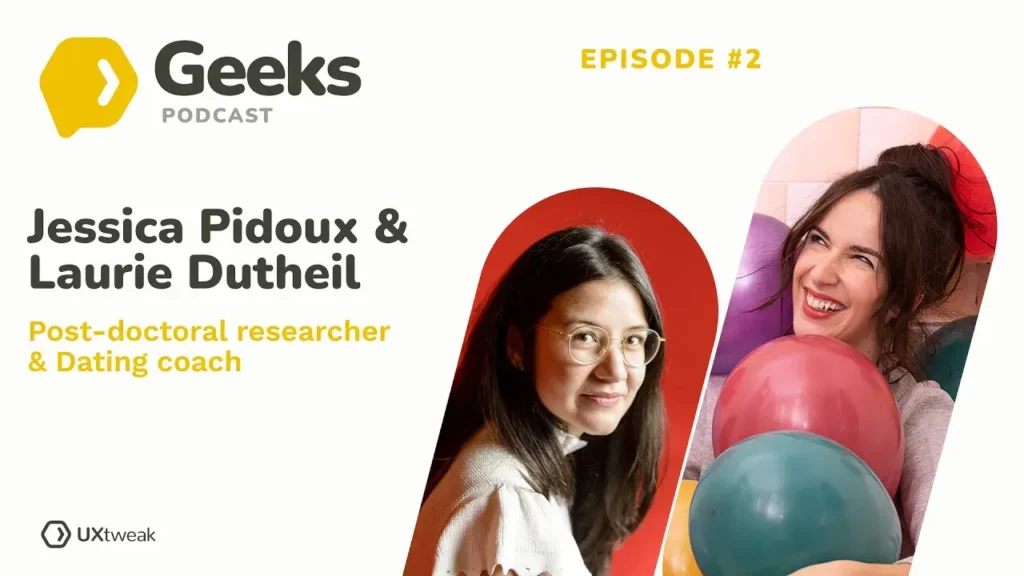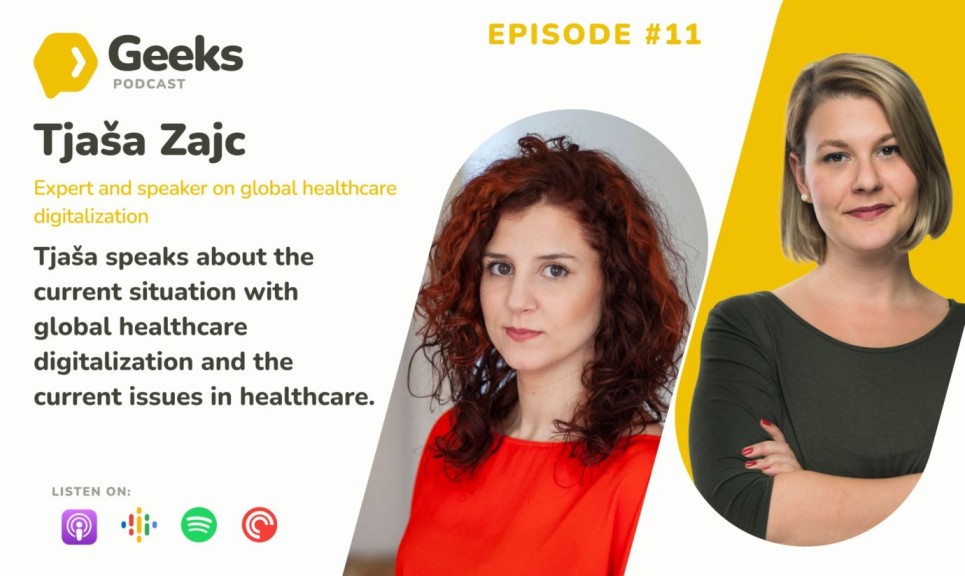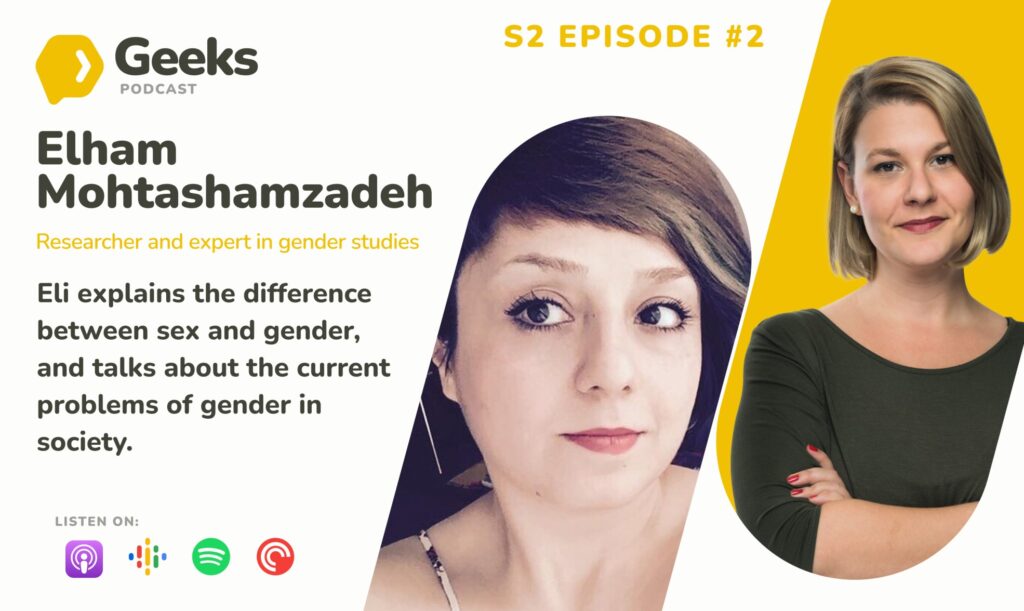Episode highlights
00:01:43 Journey into Digital
00:07:25 Digital Maturity and Privacy Concerns in Different Countries
00:14:20 The Importance of Testing and User Feedback
00:19:50 Favorite Part of the Research Process
00:25:03 Translating Research Insights for Stakeholders
00:31:23 Exploring Podcasting Pace and Content Strategy
00:37:23 Connect with Mike
About our guest Mike Green
Mike Green MBPsS is an accomplished freelance user research lead and UX podcaster. With a diverse clientele spanning startups, government departments, and FTSE100 companies, Mike excels in improving user understanding throughout the digital design and development journey. His expertise results in the creation of user-centric experiences, ultimately elevating customer satisfaction, conversion rates, and client retention. With a master’s degree in Psychology from the University of Bristol and membership in the British Psychological Society, Mike combines his passion for building connections with his professional skills to thrive in the dynamic field of UX across multiple countries. You can connect with Mike on LinkedIn or explore his work further on his website.
Podcast transcript
[00:00:00] Tina Ličková:
Welcome to UX Research Geeks, where we geek out with researchers from all around the world on topics they are passionate about. I’m your host Tina Ličková, a researcher and a strategist, and this podcast is brought to you by UXtweak, an all-in-one UX research tool. This is the 17th episode of UXR Geeks. This one is a little bit different because two podcasters, me and Mike Green, were talking to each other and we were geeking out on UX research. Obviously. We were talking about different traditions in user research, his experiences, my experiences from different countries.
So tune in and listen to Mike Green, who is a award nominated freelance user researcher from UK. And I hope you will have so much fun as we had.
[00:01:10] Mike Green: Tina Ličková. Hi Tina.
[00:01:11] Tina Ličková: Hi.
[00:01:12] Mike Green: And we thought we’d just get our brains together and have a little chat and share our experiences both professionally within the user experience world and also of UX podcasting, because obviously there’s a growing number. But it’s great to have you, Tina, on the show. Nice to chat.
Thank you. Thank you for the idea, because we had the same idea, but you reached as the first on LinkedIn and I was like, yeah, great minds think alike.
Absolutely. So tell me a little bit about yourself, Tina. What’s your kind of day to day role? We’ll come on to the podcast in a minute, but what’s your sort of journey into digital?
[00:01:43] Tina Ličková: Yeah. Journey into digital. Yeah. My framing in the journey of digital was I was working in HR consulting and after two years I started to hate it because I didn’t anymore trust the product that we were selling. And I had this framing like, I want to do something on the internet. We are talking 2010. And I joined an advertising agency.
And that was after two years there, there was a explosion of Facebook apps and competition on Facebook and social media, as we know it now. And I was just trying to explain to my clients how it works, so I started to work on my first wireframes, then I found out, oh, there’s something like UX, and then the story goes, okay, there’s something as UX research, and that was my professional aha moment of, Oh, people want to pay me for this.
I will do it because it’s nice. And I get to speak to people, get to learn because I’m super curious. And from there, I had my own company. I worked for several companies as a UX analyst researcher, and now I’m more in the research ops space, which is also a lot of fun, but trying to learn how it goes in big companies, in big IT companies where the maturity of UX research is not really high.
So that’s the current challenge, I would say. What is your current challenge?
[00:03:02] Mike Green: My current challenge? I think the word maturity, you just used it there. I think it’s amazing. I’ve worked in the UK government for a number of years as a contractor. So I originally started actually, I’m a linguist originally by training.
[00:03:12] Tina Ličková: Ah, okay.
[00:03:13] Mike Green: And I’ve lived in various parts of the world working and traveling. And then I got into digital publishing quite a few years ago, but that felt like it was a, not a, an industry that’s having challenges. It was a bit like kind of the record industry and photography and stuff, trying to stay contemporary and relevant with the massive explosion of the internet about 15 years ago.
So UX here, did a master’s and pivoted into UX about a decade, just over a decade ago, you just, I just love it. It’s great to be in something that’s fast paced and transformative and so many lovely people we work with generally UX’s are a nice bunch And so we get to do stuff like this, which is great fun but I think the maturity as you were saying maturity levels of organizations varies and pulling up UK government which kind of One would think would be slightly government be behind the curve in terms of slower than the private sector is very much not the case in Britain, UK government with GDS government digital service about 10 years ago, very much embedded kind of user centered design in the way it builds digital products and services.
So it’s been great to work with a number of parts of the UK government for quite a few years now, and then moving on to kind of other sectors and finding that actually their levels of maturity are a bit lower. You’re having to up skill them in terms of what is Agile. You can’t actually talk to your users.
You should talk to your users before you start wasting time and money building things, which nobody wants or uses. That’s a challenge, but it’s fun.
[00:04:28] Tina Ličková: How did you end up in the government space? Because that’s super interesting for me, to be honest.
[00:04:34] Mike Green: It was semi accidental. I had basically, I had a friend, a good friend of mine had started contracting and he got a contract with HMRC, which is Her Majesty’s Revenue and Customs, which is basically the tax department of the UK government.
And he said, there’s a roll going here. Do you want to? Come and dip your toe in the contracting water. So we started there. I started there about seven, eight years ago and never looked back really. And since then, I’ve done stints in education, the department for education in the UK, I’ve done stints with the cabinet office, ministry of justice, the foreign office, and what’s interesting is a lot of the challenges they face are very similar, each department.
Some of the subject matter experts, I’m sure this is familiar to you. Everyone thinks their problems are unique, but actually in terms of digital transformation, the problems are very similar consistently. And it’s just a question of, and actually the advantage of, I found of contracting is you can do lots of.
And then you can use that and bring it on to the next place and say you’re not alone in what you’re going through that other people are struggling with similar things and these are some ideas that have worked elsewhere.
[00:05:36] Tina Ličková: Interesting. I majored in political science, so that’s why I’m asking and I never had a chance to be actually in that space of the official or the state services.
I don’t know if I would like to be on that side in Slovakia, to be honest. Yeah, our politicization is not the best, although there are very good people working on it right now. But yeah, that’s why I’m asking. And it’s true that in Britain, it’s very well done. It is one of the benchmarks that we have.
There is a group called Slovensko Digital. Slovakia Digital who has a benchmark like when it comes to front end it’s UK when it comes to the back end it’s Estonia in the governmental digital services. So yeah.
[00:06:19] Mike Green: Yeah. Estonia has topped the pole for a number of years, maybe not now, but it certainly did a few years back in terms of the most digitally advanced governments, I think in the world. Yeah. Estonia was regularly number one, which is great to see. I wonder if there’s anything to do with the kind of the size and. The fact you’re starting relatively from scratch. You don’t have some of the legacy issues, but you’re in Vienna now.
Is that right? You’re in.
[00:06:40] Tina Ličková: Yes, Vienna, Austria, which is just 60 kilometers far away from where I come from.
So it’s after moving here from Berlin, it was very surreal being an hour at my mom’s and eating lunch. A lot of things are different, a lot of things are the same. The food is probably mostly the same. Also when it comes to desserts, it’s surprising. Oh, we have that too. Just a little, there’s a little piece different, but that’s, it’s the similarity.
But the mentality is different, of course. 40 years of communism made something to a country and Austria didn’t have this as well as the history and traditions and Slovak people being under their empire, Austrian Hungarian empire. That brings a lot of other perspectives on, yeah.
[00:07:25] Mike Green: That’s fascinating. And what about sort of digital maturity levels? Is Austria kind of way ahead of, or ahead of Slovakia in terms of?
[00:07:31] Tina Ličková: No. The other way is around.
[00:07:33] Mike Green: Oh, really?
[00:07:33] Tina Ličková: Yeah. If you look at the Eastern Bloc we are poor or we were poor countries coming from very poor circumstances, but we had the advantage of nothing was there after the wall fell after 1989. And a lot of people, and also it’s the ambition level that Eastern European have, you see now in Ukraine, the people are still working there.
They are in their basements and working and have a stable internet better than somewhere else in Western Europe. And the digitalization, for example, governmental in Ukraine is also. I’m sure that way ahead of other countries. In Slovakia, it’s a problem about corruption. Why it didn’t happen that way that it’s supposed to happen.
But when it comes to, for example, even when I was living in Germany, I was surprised how many things are on paper or that somebody asked me to send fax. And I was like, so in Slovakia, you are really used to of course, not all services are good, but when it comes to commercial services, you are very used to some kind of standard.
And stable internet anywhere you are. And then you go to countries like Germany, where it’s, it depends where you are. And it depends on, so also the mentality towards digitalization is different. We don’t care that much about data privacy. Germans do care about data privacy immensely. I also saw the difference when I was testing with Germans and immigrants, how they were looking into details about like my, how my privacy is protected was a different way of researching it on the websites or on in the apps that I was working on.
[00:09:07] Mike Green: Oh, that’s really interesting. So in terms of kind of usability testing with different. Yeah. There’s more interest, for example, Germans, you said, in terms of kind of privacy notices and how the data is used.
[00:09:17] Tina Ličková: It sounds super stereotypical, but it’s this, yeah, I could really see in tests, oh, it sounded a little bit like the request to the recruitment agency was even weird. Like we want to have people who are German born and raised, but we really wanted to explore financial mentalities or mentalities when it comes to money of germans or people who had the most background living in Germany, but there was already a difference how they approach the app, how they register, what kind of information they were looking for. There was always this touch point, like, how is my privacy being protected, which other people didn’t look that much into.
Depending, maybe it’s also the thing, okay, I’m being tested. I look because it’s a good manner to look into it when I should be looking into it. But it was interesting that there was this very natural reflex of German nationals to explore the privacy.
[00:10:11] Mike Green: So what kind of organizations have you worked for, worked with Tina, and what kind of How have you been involved in terms of digital?
[00:10:19] Tina Ličková: Good question. I would say I’m an all rounder, but the most I was enjoying till this point was finance. I’m like, I’m one of those weirdos because my mom is a banker and I grew up talking to her about, with her about money. a lot in a sense, okay, there is a saving account and maybe we should invest in this and investing into real estate makes sense and discussing these things.
So when I joined Neugelb, which was a service design agency of the second biggest German bank, Commerzbank, it was very natural for me to look into okay, what is out there, which would help me to understand people and their mental states when it comes to money. So I was exploring financial psychology that I’m in with people and I found different models.
And how people, what kind of relationships they have to money, stuff like that. And it was super interesting. That was really fun to do.
[00:11:14] Mike Green: How did you do that research? Was that kind of in person? Were they remote sessions?
[00:11:18] Tina Ličková: I started really like classically desk research, looking into studies and then trying to figure out, okay, how does this apply in real life when I speak to real people and combining this, let’s say official typologies from the desk research with the real life.
And we were there back then doing personas, which is, I know it’s a triggering word in our business. You say persona and people, I don’t know, want to slap you. And I’m still thinking, yeah, but you just have to use it properly.
[00:11:48] Mike Green: Yes. They have their place, but they’re often misused.
[00:11:50] Tina Ličková: Do you have any favorite methodology that you go back to?
[00:11:53] Mike Green: One that I’ve used a number of times. I don’t, haven’t been able to go back to it that often are diary studies. I think with diary studies it’s, yes, obviously I, my bread and butter is. Remote research sessions typically an hour with kind of a variety of stakeholders and end users and understanding their needs.
Shadowing is always good. If you can go into people’s offices or places, work or homes these days, post COVID it’s harder, but in terms of, I think just. Yeah. I just love diary studies. It, as I say, it takes, I’m sure you’ve done them yourself. It takes a lot more setup. It takes a lot more kind of handholding, but there’s nothing like that kind of longitude or whether it be a week or most a couple of weeks, probably people’s regular use of something or interaction with the service and then giving you feedback as you go, because they’re doing it at different times of day.
They’re doing it at different places. Typically they’re doing it in different contexts, maybe on different devices. And you get a much more holistic view, I think, than just putting a single pro stuff in front of someone in a one hour session and saying, let’s go through this together. So that’s one of my favorites.
And how about you?
[00:12:52] Tina Ličková: I’m, I will just stick with the direct studies, which actually I never did one. I was always close of doing one, but it was always matter of, Oh, we don’t have the budget for it, or we don’t have the time for it, or. It’s not anymore needed and this is the thing where I probably see when I look at the US and UK market It’s already a practice that is well established in the German market.
I could say okay It’s already there as well. But then you have smaller markets like Austria, which is 8 million people that it’s non comparable With UK, for example, I think there is this connected link of the small market and how many or how much do you go into research and how much do you want to spend on stuff?
So I did a small thing of, okay, let’s build this group in WhatsApp and ask people there just on a daily basis, something, but that I wouldn’t say it’s not a diary study. Yeah.
[00:13:44] Mike Green: The example I always use actually is a case study on my website, researchable. uk. Where I was working with the department for in here in the UK, it was during the pandemic.
And as that rapid response to homeschooling and the challenges that lots and lots, millions and millions of families faced across Europe and the world, but the focus on Britain is that the department wanted to get. Technology solutions out to families and children, particularly disadvantaged children.
So that was in the form of hardware devices. So there were tablets and there were laptops and so on. And there was also in parallel with that kind of connectivity solution. So I was working on the connectivity bit and they had this idea to, we can either offer. Hot, wide hotspot vouchers, or we can offer like physical routers, little boxes to send out to people.
And so they were proposing to send lots of these kind of either solution out rapidly and obviously not in any significant cost to the taxpayer. And I said, cause I was in a fortunate position of being in this small team with quite a lot of clouds. I said hang on a minute. Have you tested either of these solutions with families to see if they work?
And and the sort of light bulbs went on and people said no, we haven’t. So basically I did a diary. We are focusing specifically on the wifi solution. We gave a bunch of families these vouchers and said, there you go, knock yourself out. And if you could just, here’s a short Google survey. And if you could just reply every day, just telling us about, and as short as possible, very simple to fill in what your experience was and the experience.
And then we followed up with them at the end of the week and had another conversation with them and heard about their experience. So we had basically the beginning and after chat in depth, but we also had the feedback as we went through. And the feedback came through quite clearly that. They couldn’t get online, or they couldn’t stay online, that the Wi Fi solution didn’t work.
And if it did work, it certainly wasn’t suitable for sustained homeschooling, where children needed to be online for hours. So we flagged this, I flagged it to the team, to the department, and actually, to their credit, they listened, and they canned that solution. And that was, that to me is proof of the power of user research because it was on the back of that piece of research.
I ran it, but the team was involved that they pulled that solution. So I think again, it is one of those things where a stitch in time saves nine. And if you do the right research and understand the user needs upfront, you can save a lot of time and heartache and money. Because I think there would have been families struggling to get online had these solutions gone out en masse.
[00:15:54] Tina Ličková: Yeah. I love this moment where you are actually, it’s not even the well known aha moment, but the moment where you know Oh, we just saved so much money.
[00:16:02] Mike Green: Yes. And heartache and sweat and tears.
[00:16:05] Tina Ličková: Yeah, I remember one situation we were doing a design sprint with designers. It was still at Neugeld in Berlin and we called some users and we were just showing them some flows, really.
On big flip chart papers put together and we were explaining them the flows and just asking them on the insides and we were actually thinking about asking the users few questions for the beginning to explore how they think about money. How they want to save money and one girl was just amazing. She was like, wait a second, you want to ask me this right here in the beginning?
And we’re like, yeah, what do you think about it? It’s like going on a date with a guy who directly asked me on the first date if I want to marry him. I’m like, whoa, okay, yeah. So that was a pretty strong one where we realized, okay, we first have to win the trust in order to ask these type of questions.
And then. And then a beautiful structure came out. These are the questions that are okay. These are the questions that are in further on, on the road. And these are the questions when we already have you as a stable client, I would say.
[00:17:18] Mike Green: Yeah. No, it’s fascinating. Is that, and it’s always lovely to talk to other researchers in here.
How they do things because our job by nature has been curious about people, but not just our users, but also our, colleagues. And I think it is lovely. So what is day to day? What does a day to day kind of work look like for you, Tina?
[00:17:35] Tina Ličková: Oh, now it’s writing a lot of Jira tickets, which is honestly, it’s killing me.
I won’t even sugarcoat it, but we need to tidy up. And my lead was just like, okay, let’s bring it together that we are a new team in the organization. So we’re trying to really establish. The basics. So it’s like trying to figure out, okay, how do I write this ticket? So it’s understandable if anybody comes to our Kanban board and wants to know where we are at.
But it’s really looking into the research ops basics, I would say, because I was a little bit surprised when I look at my hiring process and then made me joining, I realized that the maturity of the organization when it comes to UX research is way lower than I anticipated, and there are still basics missing.
And two big topics, and I hope I’m not saying something that I can’t, but are like, okay, guidance, typical. There’s a lot of materials out there, of course, on the internet where you can learn and stuff, but having it a little bit on a tray, okay, this is how we do it in our organization. Learn this and you will be fine.
[00:18:38] Mike Green: So hang on, when you say guidance for the organization and user centered design?
[00:18:41] Tina Ličková: User centered design and UX research as well, because ratio is we have three UX researchers. And me as a research operation specialist right now, and their organization is 4, 000 people. So we need to go and scale up. And also the organization is a fair believer that PMs should be talking to customers, which I’m all as well.
I have the task of enable people to do research and to do it well. So we are not diminishing or jeopardizing the craft, but we still enable people with those processes, tools, infrastructure to do it and to do it well and not to, but it’s obviously it’s when people approach me, we have a format where I, which I call research advice, people come to me, say what they are trying to solve and ask me what kind of method and what will be the research approach and how it usually the meeting ends up is, Oh, wow, that’s a lot of work. It is. It is. Welcome to my world.
[00:19:40] Mike Green: Yeah. But it’s work done up front that saves time and money later, right? Yeah. That’s the key thing. That’s what people don’t get, I find.
[00:19:45] Tina Ličková: What is your favorite part in the whole research process?
[00:19:50] Mike Green: Oh, the whole process? I think it’s a cliche to say it, but talking to the users.
We’re very privileged in many ways that we can parachute into people’s worlds. Having worked across a number of, as I mentioned earlier, different government departments, I’ve… One particular thing I was traveling out with, and we were working on this piece of work for the Ministry of Justice, and I traveled around with bailiffs in their van.
Going to people’s houses. It wasn’t particularly cheery work, but it was a fascinating insight into a whole kind of aspect of the world that I’ve never really happily had to encounter where lifts were going out with letters of demand for people who hadn’t paid bills and were struggling. And they were, and I remember meeting in a court building before we spent the day in the van with this guy.
And I said, do I get out of the van? He said, no, you mustn’t get out of the van. I haven’t got a stab vest for you. You’re not trained. If something happens at the door. So this sounds really negative. It was quite heavy going. But it was fascinating. So I stayed in the van, we pulled up and I watched him go to people’s doors.
Most cases, nobody was there or nobody answered the door, as you can imagine. And then in the next project, we were doing with government overseas. So a bunch of people from the government digital service spent time doing a discovery in places like Kuala Lumpur and Jakarta, talking to various parts of the ministries of the government out there to understand how they did public procurement.
So it’s so varied and it’s, yeah, it never gets boring because even though the methodologies are similar, the context is always different. At least that’s what I find. How about you?
[00:21:14] Tina Ličková: For me, it’s hard to say it because I am a person who constantly goes between introvert and extrovert. Sometimes I wake up and I don’t know who I am, but it’s definitely the privilege of having both possibilities of, okay, I’m talking to people.
I’m really enjoying it. I’m learning so much. Especially when I’m not in the mindset and sometimes it’s that trap happens I already know about this, but if I go back to, okay, I’m learning, then that’s very high of a high value, but then I love the part of analyzing, like really going through the videos, for example, and coding it and bringing it together and bringing it, I’m also very visual type, so I’m always trying to somehow summarize it.
Okay. In a visual way for the client or for the companies that I work internally with. And then again, the part of extroversy comes into it, but where I’m more of a service, where I really try to go into discussions with people. And not just click another slide and present it, but, Hey, what do you think about it?
See how people can empathize where they struggle to empathize, where they don’t understand when they go through what I call, I don’t know if it’s a term, but post racial analyzation, it’s met a few times where product managers were like, we came with new incidents that are like, Oh, we already have that in backlog.
Do you, or do you, are you just, putting it there so it makes sense and you don’t have to come up with new ideas. So that is also for me, if, when I see that, for example, exactly product managers are like, wow, okay, this is changing and this is saving me money and this is making me, or this is helping me make a decision way earlier we better.
[00:23:00] Mike Green: Let ourselves be masochistic and stupid, and fight for what is right. And so now I’ve gotten the feedback, I think, I need to do a couple of things about that. And there’s this endless call for, tell us by X date, what you will have done, what you will have delivered. And we’re like we don’t know. Like we’ve just finished a discovery.
We’re about to start an alpha by, I don’t know, three months hence. What will you have found out? And that’s the whole point. We don’t know what we found out. You just need to trust us and you need to let us get on and discover. And it’s really. You have to keep putting yourself again, pretty user centered about it.
Put yourself in their footsteps and go, okay, for them, it’s probably quite threatening as well because people’s reputations and they’ve got their own budgets, they’ve got their own teams. They’re trying to do the best work they can with the opportunities and situation they’ve got. And like us come in and say, move fast and break things and trust us.
And we’re going to go off and do talk to 50 people remotely and then come back and give you some insights. But we don’t know yet what those insights will be. I love that, but I can see why. For people who aren’t bought into that way of thinking, it’s quite challenging or can be.
[00:24:06] Tina Ličková: Yeah. I remember one, and I think I’d already told the story somewhere, but it was in Prague.
We were running a big design thinking workshop for a telco company and I had a team, I was co-facilitating and I had a team of like really product and pro project managers and I think I had a team just with guys, so not even a female element. And they were really. masculine and stereotypical way like what is the goal?
What is the goal? I want to have the goal. You heard the embrace uncertainty thing? This is the moment where you have to embrace it. They were like, but I’m struggling. I was like, yes, this is, it’s hard. And it was more in, on that, in that day, trying to figure out how to, it was more of a psychological facilitation on how to calm them down.
But we actually got there, but they were still like, Oh, this is just. So open that I can’t deal with it. And that’s also research. What is research about? Yeah.
[00:25:03] Mike Green: Yeah. Yeah. And you talked about analysis earlier. I wrestle with sometimes, let’s say you’ve done a few rounds of research. You’ve got maybe 20, 30 hours of great insights from variety of user types.
And you’ve got all of this kind of insight. It’s then transferring that into something meaningful and concise that you can put in front of stakeholders. How do you go about that?
[00:25:23] Tina Ličková: I was multiple times asked this question. And honestly, I don’t know, my brain just works that it needs to sort things out. It needs to go to brackets, to categories, to stuff.
So I would, if I would put, it’s like a mapping, it’s coding, deductive, inductive. It doesn’t matter if you tell me, okay, this is the taxonomy. Let’s try to find there or come up with the taxonomy. It just very natural for me. So I can’t really explain it, but for me, I very soon start to think about, okay, how am I going to, when you already start to see the patterns, this is coming out and this is a big finding and this is a big insight on how do I present it to people?
How do I make them actually have this? Oh, okay. And what I love is also to show them, this is what I’m always looking for, contradictions. Or I call it contradictions, like people telling me something in the interviews or tests, but doing something completely different. Or telling me that they would… I had this when I was recently interviewing a friend of mine in the Slovak podcast about male feminism.
He was like, I want to talk about masculinity with more men and I want to explore the topic and I want to find out what is masculinity. And I was like, but are you doing any of that? Because he was sending me articles as a friend about this topic, but he was never actually reading it. So if you want to do it, but you are not doing it, that’s the contradiction that I see.
And he was like, Oh yeah, you are right. And also, for example, when I was researching that in the space of financial psychology, it was, I want to have an, a multi banking app where I put everything. But I won’t give you my data. Wait a minute. This is what I, yeah.
[00:27:19] Mike Green: There’s a fascinating case study I read on Medium ages ago about, I think a researcher from Netflix or one of the streaming platforms, and that in all the research they’ve done with users, particularly when it was with parents, they would ask them about parental controls.
All of them, almost to a man and a woman said, yes, we would definitely want parental controls on the platform. We would definitely set them up. And that was the kind of feedback they were getting from the in person or remote research sessions. And they looked at the analytics and kind of settings, profile settings on the platform.
And the percentage of people who were actually using the parental controls was a fraction of those who had said, yes, we are, we want it. So exactly to your point, what people were saying, what they were doing were completely different. And that’s the kind of. That’s the delta, isn’t it? And that’s where the interest, the interesting, the insightful bits sit.
[00:28:05] Tina Ličková: Maybe for closing or going into the end for me, it’s super interesting. What was your personal motivation for your podcast?
[00:28:13] Mike Green: This podcast. Not for this one, for your show. Yeah. So understanding users is my podcast. They are a little plug and we’ll put the links to both our podcasts in the show notes.
I’m interested to hear about yours as well. Just, I think for a bit of fun, I wanted to start something on the side. Just, I’ve had the fortune of working with lots and lots of great people and I’ve had lots of fantastic guests on who’ve been very generous with their time and sharing their kind of knowledge and insights.
And it’s grown over time and I try and get a variety of guests. So heads of UX, lead user researchers. I’ve had some business startup founders on and conferences as well. I’m doing more of, so going to conferences, particularly now they’re back in person in the post COVID world and you get a real buzz and actually recording things live in person at a conference, you can hear the buzz in the background and what’s wonderful is how excited people are to be back face to face, kind of meeting others and sharing and so on.
But it’s fun doing this sort of thing. It is great. And tell me a bit about your podcast.
[00:29:05] Tina Ličková: It started, I came to Vienna April, two years ago, and I was like, okay, I’m back home in the middle, in middle Europe. And I wanted to do two things. I was thinking about a community of researchers in middle Europe and Eastern Europe.
But I was like, I’m not really a community manager. And that’s a lot of work. And then I was like, maybe I do the podcast, but I was super scared about the technical side of things. And then Barbara, who was a marketing manager at UX Tweak approached me and she was like, Oh, we would like to have an interview with you for this.
They have a Sierra women in UX. And I was like, Oh, that’s boring. I can’t just fill out some document and you publish an article. Some people can, but me in writing, trying to answer some wise questions, it’s just not working. So it was like, Oh, you should do a podcast. And she was like, we are not going, definitely not going to do a podcast, but what about you doing the podcast?
I was like, okay, that’s a match. And it was, and then I was just like, after we ended the call, I was like, what did it just said yes to, but they are supporting me on the technical side, on the marketing side, which is. It’s a very high value and it’s working out pretty well. And my kind of purpose was to bring people there because there is a lot of dominancy from US and UK coming because that’s also where the business is the biggest when it comes to user research.
Our big countries like Germany, but I was thinking, okay, let’s bring more people, more research traditions into it. So I’m, we are really trying to go for, okay, what are the interesting use researcher from Asia, Africa, Australia, New Zealand, whatever. Latin America, although Latin America, we probably didn’t have yet.
There is a plan and honestly also let’s bring more women into the mix because I think user research or research overall is more female dominated but for that Female are not that much seen and leader positions are more men, again. So the feminist out of, again, jumped out of me and was like, Okay, let’s bring girls into the mix or non binary people.
That is something that we are trying to have the diversity there as well, but just, not just to speak about it, but to live it.
[00:31:23] Mike Green: And how often do you publish an episode?
[00:31:26] Tina Ličková: We do now every three weeks or once a month because I decided to slow down and we found that the pace we had was a little bit too much.
Now we are changing a little bit the concept. We are making sure that we will make shorter episodes with a focus on really just one topic and not talking all the research universe like we are doing now, but it’s a different story. So that is how we, how often we publish. You do every two weeks, right?
[00:31:53] Mike Green: Every two weeks. And it’s a fair amount of work and it’s enjoyable, but to your point around, yeah, to keep that pace up, cause you obviously got to be looking out for guests and then scheduling and the recordings, doing the recordings, editing, but people are very generous with their time. And and I think that the shorter format is keeping the quality by keeping it short, I think it is a really good idea, but yeah, my, my audience is, essentially a variety, really people experienced in I’m keen for people who may be even experienced in this world, hear from others, practitioners.
Also people kind of juniors coming into it, people thinking of moving into UX, hearing a variety of voices, but also I think organizations that want to do more in terms of user centered design, hearing more about what we do and how we do it. My hope is of value. And yeah, and it’s fun, isn’t it? And it’s, it feels to me like a natural extension of what we do in our day jobs is just talking to people, asking them questions, teasing out insights.
[00:32:41] Tina Ličková: Yeah, it’s great. Although, it’s what I said in the beginning when we were kicking it off, it’s hard to find the niche between, oh, I’m still, it’s a UX research show, and I’m a UX researcher, I’m being watched and how I’m asking questions, and it’s also not my language, or German, where I’m better. As well, but I’m here to entertain people.
This is for entertaining and people to give space, not give space, not to talk too much. So this is what I still didn’t figure out. And that’s also fun, but I still didn’t figure it out.
[00:33:17] Mike Green: Yeah, I think the first and foremost is. Enjoy it because if one enjoys it, hopefully that comes through in the recordings and you put your guests at ease and so on, but I think the podcasting world, as we were saying earlier on is, and there’s more and more sort of podcasts coming, all sorts.
And I think if people want to, if they want comedy, I the comedy podcast, but hopefully there’s something insightful and useful in the kind of the episodes that I, and we put out that kind of interest people, but it’s, yeah, it’s great. It’s great. Before we wrap up, Tina, can I ask one favor? Yeah. I do this with all my guests, the three card challenge.
[00:33:49] Tina Ličková: Ah, yeah. I heard. Yeah.
[00:33:51] Mike Green: So I’ve got three playing cards here and I’ve written, we’ve touched a little bit on some of this already, but I’ve written trends, technique, and tool. And if you don’t mind, what I’d like you to do is just pick a card. We’ll pick through one. We’ll go through each of them.
[00:34:02] Tina Ličková: I don’t know the English names of the card, but I picked the J.
[00:34:07] Mike Green: So the jack of clubs is technique. We touched on this, but is there, you mentioned sort of diary studies, but is, what’s your sort of go to technique when it comes to doing a piece of research?
[00:34:18] Tina Ličková: Technique, we don’t mean methods. We mean technique of Neither.
[00:34:22] Mike Green: Yeah. Okay. Approach to doing a piece of research.
[00:34:25] Tina Ličková: I, when I’m more on the strategic side, not on the research side, I always say, Pen and paper, write it, that it goes through your hand, but when it comes to research, I really love the concept of open doors from psychology, from psychotherapy, where it’s like you have your script, you have a guideline, interviewing guideline, but then there is, you’re speaking to the person and you finally, suddenly see.
Oh, wait a minute. There is this topic being just open up the open door and do I want to enter? Do I not want to enter because I will, the conversation will slide somewhere else. So thinking about what doors are opening for me in the conversation is a constant thing that I have in my mind. Maybe it’s not a technique itself, but yeah, that would be my answer.
[00:35:10] Mike Green: I love that. That’s really nice. And it’s that, I guess there’s a, a confidence thing in being able to do that. And that comes with experience. But I suppose the counterpoint to that is always one is against the clock, but you’ve got your broad list of questions that you want to ask, and you’re looking at the clock and you’re thinking, I’ve got an hour of this person’s time.
I’ve got these points I want to cover off while at the same time, as you say, letting people steer you. So it’s, yeah.
[00:35:35] Tina Ličková: But that’s the constant thing of, yes, I want to explore it and I want to go where the person is letting me go. As well, I need to bring it somehow back to what is my goal. And that’s the combination of my inspiration comes from psychotherapy and from journalism, which is very goal driven and doesn’t do any kind of like icebreaking, you just go straight away to the politician and you won’t answer.
So these type of things are for me, the most biggest exploration when it comes to techniques.
[00:36:05] Mike Green: It’s funny you say that because it drives me mad listening to it. Much as I, there’s the radio in Britain, the radio news in the morning. They’re very close, they’re very leading questions always. Do you think that X blah blah blah.
Are you confident that blah blah blah. And I sit there going, as a researcher, there’s absolutely no way I would ask that question. Or I certainly wouldn’t ask it like that. Because you are, you’re asking it with the intention that someone’s going to give you a binary answer or that you’re going to get a particular answer, which is the antithesis of what we’re doing in some ways.
[00:36:34] Tina Ličková: Two questions. How much or with what are you affected in your personal life as a researcher where people are telling you like, Oh, this is you being a researcher. Is there anything like that? This example was one of, one of it. Okay. You were listening to the radio and you were like, why are they asking this type of close question?
Is there anything else?
[00:36:53] Mike Green: Yes. It’s funny. The other thing that I think there’s pop up surveys that you get when you use the websites or services. Can you give us five minutes of your time to reply? And I always used to say, no, go away. But now I try and put a professional hat on and I say, yes, and I go through the surveys and I wouldn’t have asked the question like that.
You know what I mean? What do you want? What’s your outcome? What are you trying to understand with that question? That’s badly worded or the cut scales the wrong number of points. . It’s really sad, but it’s true. .
[00:37:19] Tina Ličková: Yeah, I get you. I totally get you doing the same. Where can people follow you?
[00:37:23] Mike Green: So I’m on LinkedIn and yeah, hopefully we can put links in the show notes.
And so the re, sorry, the podcast is called Understanding Users, so it’s on podbean understanding users.podbean.com, but it’s also on Apple. Google, YouTube, Spotify, usual. And yeah, they’re the main places really.
[00:37:52] Tina Ličková:
Thank you for listening to UX Research Geeks. If you liked this episode, don’t forget to share it with your friends, leave a review on your favorite podcast platform, and subscribe to stay updated when a new episode comes out.
💡 This podcast was brought to you by UXtweak, an all-in-one UX research software.














